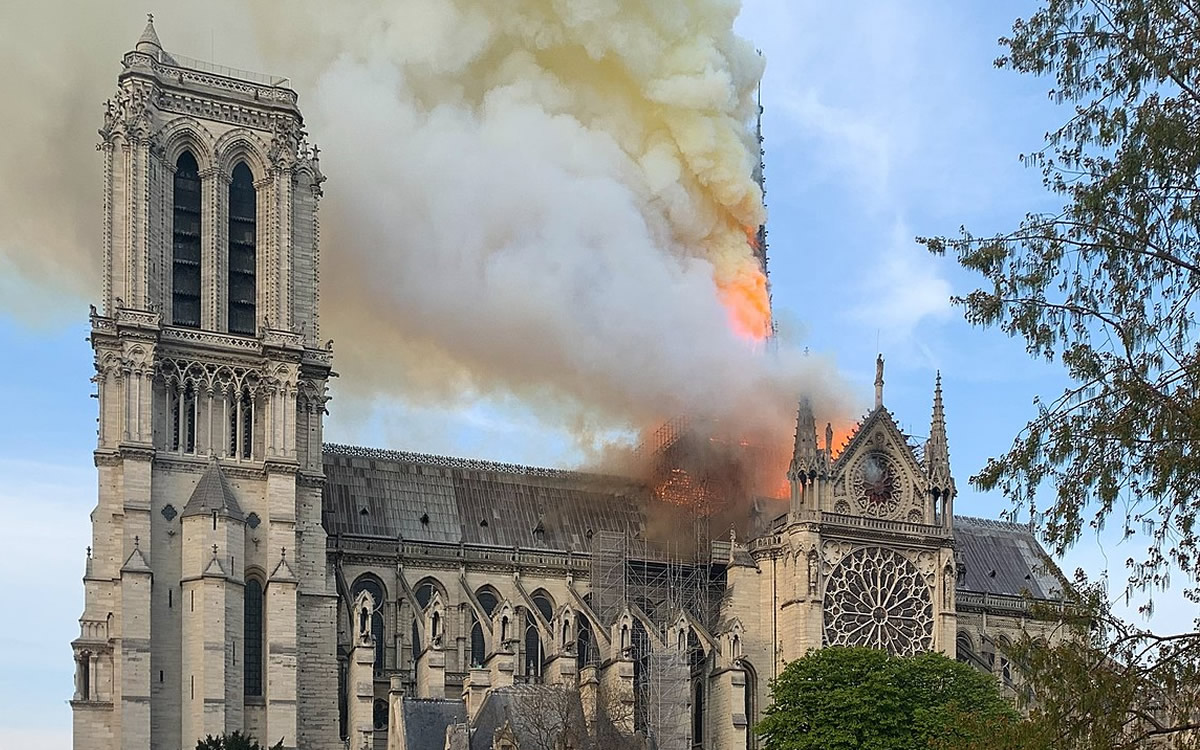By Eugene Platt
“It seems to me that the moment has come when the question of bombing German cities simply for the sake of increasing the terror, though under other pretexts, should be reviewed.”
—British Prime Minister Winston Churchill in a March 28, 1945, memo following the firebombing of Dresden
Monday in Holy Week 2019
“Paris horrified” hollers the headline
of my faraway city’s daily the day after
a wartime-like fire jolts the joie de vivre of spring
and ravages the regal Notre-Dame de Paris.
But below the bold headline in a line below the fold,
we are relieved to read no one was killed—
although one of the four hundred firefighters was injured,
moving believers to beseech balm for his burns.
Ash Wednesday 1945
Centuries too late to vindicate Dante before his death,
the late-in-the-war inferno inflicted indiscriminately
on friend and foe, civilian and combatant, Gentile and Jew,
by swarms of Allied bombers dropping valentines of vengeance
from the Dresden sky, incites continuing controversy:
Were “only” 20,000 souls immolated in those attacks?
Or was the number nearer double the 70,000 atomized
in the no-less-controversial annihilation of Hiroshima?
Then and Now
Safe from harm in the center of a city declared “open,”
Notre-Dame de Paris wept sacred tears that Ash Wednesday
for a sister cathedral hundreds of kilometers away
in once-royal Saxony’s Florence on the Elbe.
The Baroque not-so-fortunate Frauenkirche,
now fully and famously restored, dedicated to reconciliation,
sheds tears in turn today, on their shared road to Golgotha,
for a forlorn lady shivering in the shadow of the Cross.
Editor’s Note: This poem by James Island poet Eugene Platt first was published in the Canadian magazine Into the Void (Summer 2019, Issue 13). Reprinted in the U.K. magazine La Piccioletta Barca (November 2019, Issue 13).




 We Can Do Better, South Carolina!
We Can Do Better, South Carolina!
























